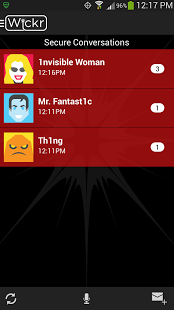txtWeb is a Cloud-based platform from Intuit India that lets ordinary mobile phone users gain access to Internet Content using short messaging service. All you have to do send a keyword through an SMS to their number, & you get back Content related to that keyword. So how eactly does it work, & how popular is txtWeb?
The 2nd question is answered more easily than the 1st. The service was launched in Nov 2010. As of Dec 2013, txtWeb had a collection of over 3,500 apps created by developers & businesses, which were being used by more than 11 million Indian users. They get more than 5 million SMS service requests every day.
But a lot more important is the fact that the potential for growth dwarfs their existing reach. Around 600 million out of India’s 700 million mobile subscribers are not connected through computers or mobile Internet. Expand the market to include the rest of the world, & you now have 3 billion potential customers with mobile phones but no Internet connectivity.
As for the how, it’s easy enough. The service is currently available in India, the U.S. & Canada. You send an sms to 9243342000 in India or to 898-932 (TXT-WEB) if you are in the U.S. or Canada. txtWeb offers the service for free, & the only thing you’ll be paying for is the sms charges your carrier levies.
For example: if you want something from Wikipedia, you send an sms that includes the keyword & @wikipedia. So if you want to see the wiki entry on Latin, you would send @wikipedia Latin. Of course, the response is limited to 900 characters per sms, but that’s more than enough for a lot of services currently available on txtWeb.
 You could even do a Web search via txtWeb. If you want to see how it works, try sending the sms with @goog & a keyword. So if you’re interested in what Google has to say about txtWeb, you send an sms that says @goog txtweb.
You could even do a Web search via txtWeb. If you want to see how it works, try sending the sms with @goog & a keyword. So if you’re interested in what Google has to say about txtWeb, you send an sms that says @goog txtweb.
Oh, & you can also use txtWeb’s android app that lets you access the functionality of hundreds of other apps without having to download the apps or connect to the Internet.
Obviously, this only works if txtWeb has an app hooked up to whatever it is you’re looking for. At the moment they have more than 3,500 apps across a range of categories such as shopping, finance, health, jobs & education, sports, travel & so on.
The ecosystem of developers & users is about the same as the App Store or Google Play. If you want your Content or Website to be sent to users when they ask for a keyword-based service, you must create & offer an app on txtWeb using their open APIs. It’s free & won’t take you more than a few minutes to get your app up & going on txtWeb.
You do have to write the coding for the app & host it externally before you attempt to make it available on txtWeb. Once you have an app written & hosted, create a keyword for it on txtWeb & publish the app to activate it. The keyword gets mapped to the external url where your app is located, & that’s about all you need to know. Any user can now use the keyword to access your Content on a mobile phone.
Image Credit: txtWeb
Advertising Message



